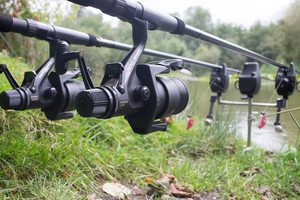A strong partnership continues: Minister Ford visits Sierra Leone
UK Minister for Africa, Latin America and the Caribbean, Vicky Ford, visited Sierra Leone on 25 to 26 May 2022, building on the strong ties between the UK and Sierra Leone. The visit also demonstrates how the two countries are working together to empower women and girls, including through education and sexual and reproductive health, promoting human rights and democracy, and accelerating sustainable economic development.
This was the first time Minister Ford has visited Sierra Leone since her appointment. While in Sierra Leone, Minister Ford had the opportunity to see firsthand the breadth of the UK-Sierra Leone partnership, including visiting a number of UK Aid funded projects.
Speaking following her visit, Minister for Africa Vicky Ford, MP said:
The UK and Sierra Leone are longstanding partners and our relationship has deep roots, stemming from shared values of liberty and democracy. This is demonstrated in our respective countries’ public support to Ukraine and our shared commitment to ensuring girls receive a quality education.
I was delighted to come to Sierra Leone to see first-hand how the UK is working with the Sierra Leonean government to support its ambitious plans to build human capital, empower women and girls and support increased trade and investment for economic growth. I had the opportunity to speak with stakeholders across Sierra Leone to understand both the challenges and opportunities, and how our two countries can work together to address these.
The UK stands ready to support in these vital endeavours.
Empowering women and girls and providing them with the freedom they need to succeed is a priority for the UK’s International Development Strategy and the UK’s engagement in Sierra Leone. This ranges from support provided towards secondary school education which helps girls stay in school, to ensuring access to family planning and lifesaving maternal healthcare. She also saw how UK Aid investments in sustainable, renewable energy, supporting health services and local economic development.
Minister Ford visited Tomlinson Secondary School in Songo to meet school children and learn how the UK’s £68.6 million education support programme works to ensure all children receive a quality education. Since 2016, the UK has improved education for 1.1 million Sierra Leonean children and ensured that double number of girls are remaining in secondary school education.
During the visit Minister Ford also:
- Saw how the UK is strengthening Sierra Leone’s health system at a Community Health Clinic – the health programme is supporting over 460,000 individuals in accessing family planning services, almost a third of which are adolescents.
- Witnessed how sustainable solar energy projects are providing power to 95 rural communities and giving over 360,000 people power. These grids accelerate the growth of local businesses, encourage honest, reliable investment and ensure that community health units are provided with power, saving lives.
- Met representatives of the business community, women’s rights activists and cultural and economic entrepreneurs hearing about the progress they’ve seen and how the UK can provide support to continue this.
In the Minister’s meeting with President of Sierra Leone, HE Julius Maada Bio and the Minister of Foreign Affairs, Professor David J. Francis, she commended Sierra Leone’s recent Human Rights successes including the abolition of the death penalty in 2021. These vital successes all contribute to the Sierra Leonian governments plans to continue to build human capital across the country.
The visit to Sierra Leone was part of a regional visit by Minister Ford and included a visit to Ghana.
